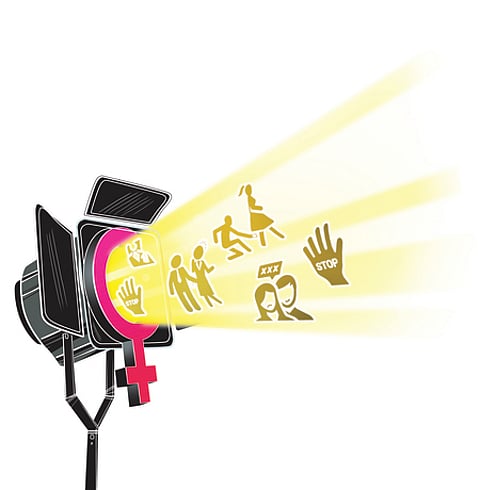

KOCHI: Emboldened by the release of the Hema Committee report that has shed light on the sexual harassments and misbehaviours that women in Malayalam film industry faced over the years, several women are speaking up against sexual assault and harassment they faced in the past. This is slowly developing like the #MeToo movement in Hollywood in 2017 triggered by allegations against Harvey Weinstein, the powerful producer and cofounder of MiraMax Films.
The revelations of Bengali actor Sreelekha Mitra and Malayalam actor Revathy Sampath led to the resignation of two heavyweights in the Malayalam film industry -- Kerala Chalachitra Academy chairman Ranjith and AMMA general secretary T Siddique -- on Sunday. Now, more women, including Divya Gopinath, Sonia Malhar, and Tess Jose, have come out against people in the industry. Artists and activists believe the incidents would encourage many others to speak up and help create a better work atmosphere for everyone in the industry.
Artist Revathy Sampath and some others revealed their experiences years before through social media, pointed out social activist Mala Parvati. "But they were isolated by industry and society. As the Hema Committee report is released, there is an increased awareness and survivors are receiving positive responses from the media and public. The public too has realised that these survivors are not attempting to defame anyone or for any personal benefit," she said, adding that the perspective shift has helped women speak up.
The issues raised by women in cinema have made people in the industry accountable and answerable, according to G P Ramachandran, a film critic. "The film industry does not have an agreement, contract, or any kind of licensing like any other workplace. These men, who have the support of the system, a huge fan base, and power, continued to exploit women and weak sections in the industry. Now, they have to respond to the issues raised. This happened when the Women in Cinema Collective and the survivors decided to fight back against the system," he said, adding that it has encouraged many women to come out and speak up.
Jolly Chirayath, a film and theatre artist, believes that it is only the beginning, and more women will come out. "For several years, women were not considered humans. There was also rape culture. Now women are able to acknowledge the issues and are willing to fight back against the system that considers them secondary citizens. These women are supported by some men who have a progressive mentality as well," she said, adding that it is an outcome of the efforts of the Women in Cinema Collective (WCC), the survivor, and the release of the Hema Committee report.
"These issues are not specific to the Malayalam film industry. We have seen the Me Too movement in Hollywood as well. Now, Mollywood is undergoing a purification process, which is the need of the hour. These incidents show that the people in the industry and the audience are willing to accept the change," said Ramachandran.
He added that there was a fear factor about job security, safety, and even morals earlier, and with the release of the report and the revelations of a few women, the survivors have become courageous enough to break the silence.
Jolly also criticised a section of society that questioned the women for not revealing their experiences for several years. "It is not easy for any woman to come out and speak. Even for Hollywood actors, it took several years to come out of the trauma and speak up against perpetrators. Then we saw a Me Too movement back in 2017. In our state, we know the status of the sexual assault cases registered. The accused are punished only if they are powerless and from a weaker background," she said.
"The film industry is going through a process of correction. I don't think this is a temporary move. Just like how political correctness has changed films, these revelations will help in purifying the industry," added Ramachandran.
Jolly added that the system is responsible for rectifying the issues, be it the industry, the state, or the structure. "We are fighting against a powerful system. Women who have undergone such bad experiences are in a hopeless situation. We were all taught differently. These women have made the system aware of the problem. It gives confidence to other women, too. These discussions should also lead to addressing the mental and emotional assault people have faced from the powerful people in the industry," she pointed out.
Writer N S Madhavan, in a post on X, said: "Hema Committee is triggering a movement similar to #MeToo. Remember the 2017 movement was sparked by allegations against Hollywood producer Harvey Weinstein. As more people came forward with their stories of sexual abuse, #MeToo went global. Immediately after the Hema Committee report, two biggies are already down. More revelations are awaited; and let's hope predators in Mollywood will be thoroughly exposed."
Appreciating the efforts taken by the WCC, Parvati added that what Mollywood is now witnessing is going to be a new wave. "The changes in the industry will be reflected in other fields too. I believe more people will come out. It will help create an empowered society and an atmosphere where we can work without fear," she emphasised.